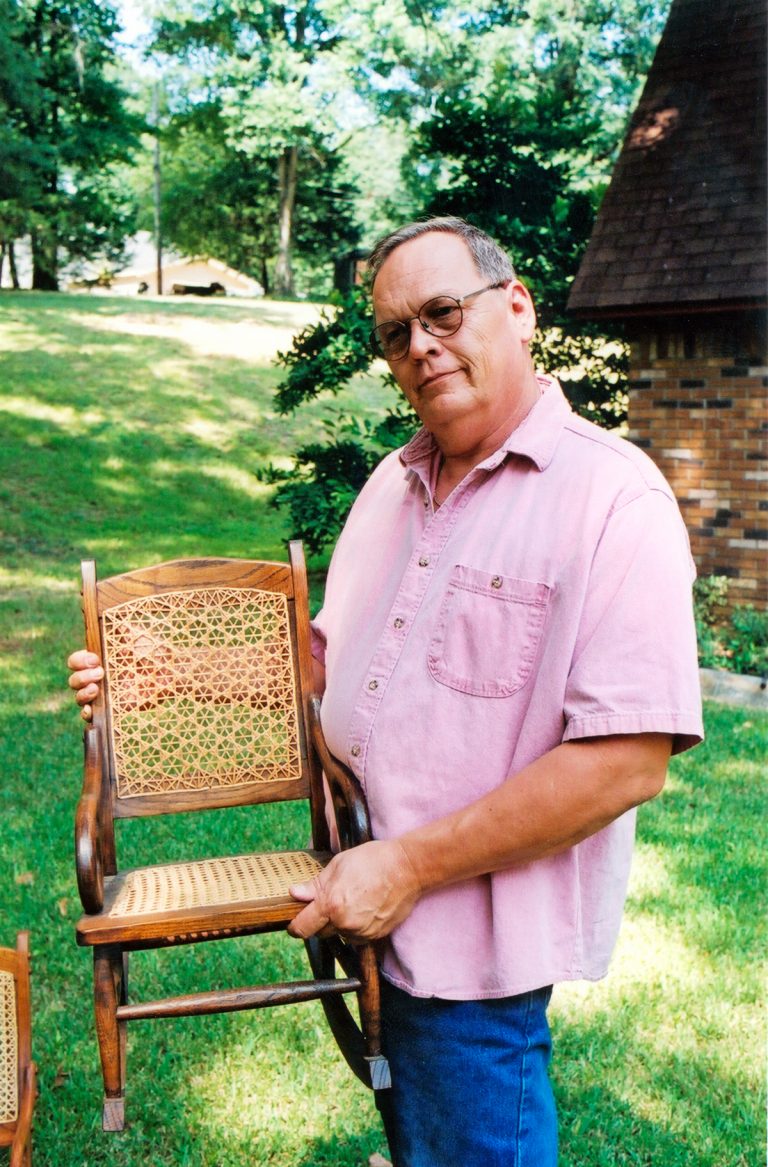While serving in the military during the mid-1960s, Stuart Proctor was stationed in Long Beach, California near one of his aunts. She happened to be a retired home economics teacher, and she taught Proctor how to weave cane for chair backs and bottoms. A very intricate craft, it provided Proctor a relaxing activity that he has followed to this day. He currently works at the Grand Gulf nuclear facility near Port Gibson and understandably needs something to help reduce stress in his off-time.
For Proctor, chair caning is a way to bring treasured pieces of furniture back to life. He is always amazed at the numbers of damaged and broken items that come his way. It sometimes seems that everyone in the state has a few chairs in need of bottoms tucked away in a garage.
Proctor uses imported cane to replicate the intricately patterned weaves he finds on the old chairs. The individual strands are quite small but very strong and the finished bottoms and backs hold up to everything except sharp instruments or the concentrated weight of someone standing in the chair.
Proctor’s demonstration at craft shows always fascinates people and usually generates both interest in caning and a great deal of new work. Proctor has taught a number of classes but has had only a couple of students who seemed inclined to take up caning seriously.
At present, Proctor is one of the few active chair caners in the state and there is steady demand for his work. A member of the Craftsmen’s Guild of Mississippi, Proctor sometimes never even meets his clients who simply leave their damaged chairs at the craft center for his attention. There are shortcuts today, including prefabricated bottoms and backs, but for those who know their furniture, bringing a chair back to life demands Proctor’s time and skill. Proctor also takes great pride in the restoration work he does for the museums and the antebellum houses in southwestern Mississippi. His work has allowed him and his wife, Judy, entry into many of the grand homes of Vicksburg, Natchez, and Port Gibson.
–Wiley Prewitt

